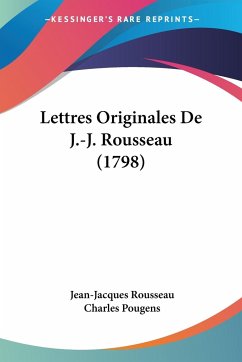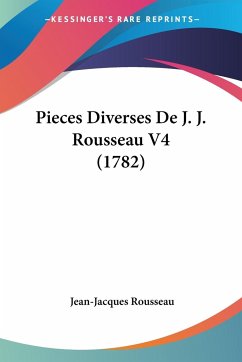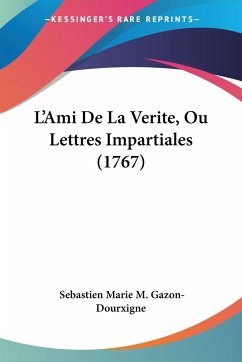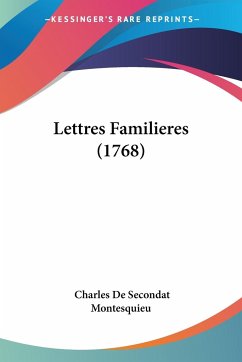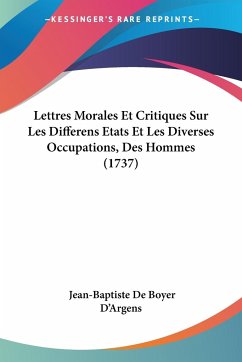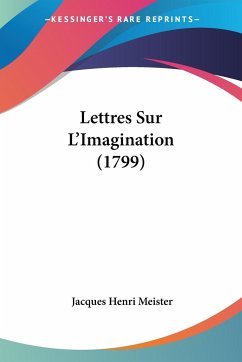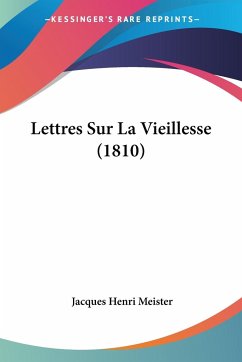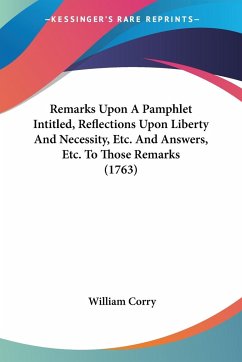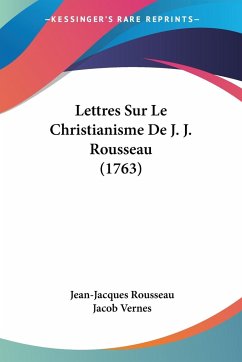
Lettres Sur Le Christianisme De J. J. Rousseau (1763)
Versandkostenfrei!
Versandfertig in 1-2 Wochen
22,99 €
inkl. MwSt.

PAYBACK Punkte
11 °P sammeln!
Lettres sur le christianisme de J.J. Rousseau est un livre ¿¿¿¿¿crit par le philosophe Jean-Jacques Rousseau en 1763. Dans cet ouvrage, Rousseau aborde la question de la religion chr¿¿¿¿¿tienne et de ses enseignements, en se basant sur ses propres r¿¿¿¿¿flexions et exp¿¿¿¿¿riences. Il analyse les fondements de la foi chr¿¿¿¿¿tienne, la morale chr¿¿¿¿¿tienne, la nature de Dieu et la question de la r¿¿¿¿¿demption. Rousseau critique ¿¿¿¿¿galement les institutions religieuses de son ¿¿¿¿¿poque, en particulier l'¿¿¿¿¿glise catholique romaine, qu'il ...
Lettres sur le christianisme de J.J. Rousseau est un livre ¿¿¿¿¿crit par le philosophe Jean-Jacques Rousseau en 1763. Dans cet ouvrage, Rousseau aborde la question de la religion chr¿¿¿¿¿tienne et de ses enseignements, en se basant sur ses propres r¿¿¿¿¿flexions et exp¿¿¿¿¿riences. Il analyse les fondements de la foi chr¿¿¿¿¿tienne, la morale chr¿¿¿¿¿tienne, la nature de Dieu et la question de la r¿¿¿¿¿demption. Rousseau critique ¿¿¿¿¿galement les institutions religieuses de son ¿¿¿¿¿poque, en particulier l'¿¿¿¿¿glise catholique romaine, qu'il consid¿¿¿¿¿re comme corrompue et oppressive. Les Lettres sur le christianisme de J.J. Rousseau sont un ouvrage important dans le domaine de la philosophie de la religion, et ont eu une influence consid¿¿¿¿¿rable sur les penseurs de l'¿¿¿¿¿poque des Lumi¿¿¿¿¿res.This scarce antiquarian book is a facsimile reprint of the old original and may contain some imperfections such as library marks and notations. Because we believe this work is culturally important, we have made it available as part of our commitment for protecting, preserving, and promoting the world's literature in affordable, high quality, modern editions, that are true to their original work.




